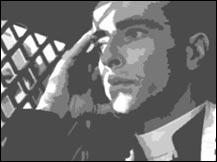Confused Confessors: Probe Discloses Clergy’s Diverging Views
By Kaunteya Dasa | Feb 10, 2007

The major Italian weekly magazine L’espresso has published a piece of investigative journalism on how Catholic priests handle their confessions; the Vatican became enraged at the disclosures.
A journalist pretended to be a normal Christian follower asking the confessors for absolution from his sins, or rather asking if what he claimed to be doing was sinful. He visited confessionals-the booths where priests sit to hear confessions-in five major Italian cities, submitting tales of involvement in activities ranging from homosexuality to research into embryonic cells, from euthanasia to sex with minors, living with a woman without being married, abortion, taking cocaine, and even cheating on the accounts for monetary gains.
What the article exposed is that often the confessors’ opinion and advice on the issues drastically differed from the official position of the Church. And this is probably what made the Vatican so furious, although they claimed outrage at the divulgation of exchanges that should have remained confidential, sacredly secret in their sacramental status.
Here I am not going to attempt to delve in the deep, convoluted, and likely controversial details of what constitute acceptable moral behavior in the areas mentioned above. And I am not going to support or oppose the Vatican in their indignant reaction (but I admit that I found the journalistic operation instructive). What I am more interested in is the theme-extremely relevant for us-of the need for religious or spiritual organizations to:
1) Have a position, according to their bodies of teachings, on the main ethical issues currently debated in the world;
2) Make the official position known, understood and deeply shared by each and every representative of the organization, especially those who are meant to interact with and guide the congregation and the public.
We don’t have a sacrament of confession as such; nonetheless private sharing of challenges in following dharma (or doubts about what is dharmic in a given situation) is certainly not alien to Vaisnava pastoral practice.
The revelations from this journalistic initiative were certainly embarrassing for the Catholic Church, revealing dichotomous, contradictory standpoints between the grassroots confessors and their bosses in Rome. But, I wonder, how would we perform as a movement if journalists were to individually interview different devotees on the same issues?














